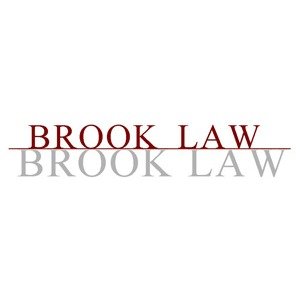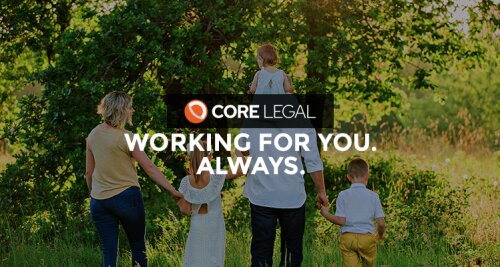Best Elder Law Lawyers in New Zealand
Share your needs with us, get contacted by law firms.
Free. Takes 2 min.
Or refine your search by selecting a city:
List of the best lawyers in New Zealand
About Elder Law in New Zealand
Elder Law in New Zealand encompasses a variety of legal issues affecting older adults and their families. This field of law aims to protect the rights and interests of elderly individuals and help them manage legal concerns related to aging, healthcare, and estate planning. In New Zealand, a growing demographic of individuals over 65 has led to increased attention on issues like elder abuse, guardianship, mental capacity, and the financial management of assets. Navigating these areas can often require specialized legal knowledge to ensure that elderly individuals' best interests and rights are safeguarded.
Why You May Need a Lawyer
Elder Law can be complex and having a qualified lawyer can provide guidance in various situations. Common scenarios where legal advice may be beneficial include:
- Drafting a will or setting up a trust to manage an estate.
- Establishing Enduring Powers of Attorney to appoint trusted individuals to make decisions if mental capacity is lost.
- Navigating residential care subsidies and understanding the means-testing processes.
- Handling cases of elder abuse, including financial exploitation and neglect.
- Dealing with disputes over guardianship or decision-making authority.
- Ensuring legal protections and rights of elderly patients are respected in healthcare settings.
- Understanding and exercising rights regarding superannuation and other retirement benefits.
Local Laws Overview
New Zealand has a comprehensive legal framework to support the aging population. Here are some key aspects:
- Protection of Personal and Property Rights Act 1988 (PPPR Act): This legislation enables the appointment of welfare guardians and property managers for individuals unable to make decisions due to lack of capacity.
- Enduring Powers of Attorney (EPA): EPAs allow individuals to designate a representative to make health or financial decisions on their behalf if they become incapacitated.
- Family Protection Act 1955: Provides a legal avenue for family members to apply for financial support from a deceased's estate if adequate provision has not been made for them in the will.
- Retirement Villages Act 2003: Regulates the responsibilities and obligations of operators of retirement villages, providing protections for residents.
- Old Age Pensions Act: Governs the entitlement and distribution of government pensions and benefits to elderly individuals.
Frequently Asked Questions
What is the legal age for an elderly person in New Zealand?
In New Zealand, the term "elderly" typically refers to those 65 years and older, aligning with the age of eligibility for government-provided superannuation.
What protections exist against elder abuse?
The Protection of Personal and Property Rights Act provides mechanisms for addressing elder abuse, including applications for welfare guardianship or property management. Additionally, there are support services and helplines available for reporting abuse.
How can I draft a will in New Zealand?
It's advisable to consult a lawyer to ensure your will is valid and reflects your wishes. Lawyers can guide you on legal requirements and help draft a will tailored to your circumstances.
What is an Enduring Power of Attorney (EPA)?
An EPA is a legal document allowing you to appoint someone to make decisions about your health care and financial matters if you lose the ability to make these decisions independently.
What are my rights in a retirement village?
The Retirement Villages Act provides a framework for the rights and responsibilities of residents and operators, ensuring transparent agreements and the protection of residents' investments and interests.
How do I apply for a government pension?
Applications for New Zealand Superannuation can be made through the Ministry of Social Development. Eligibility criteria are based on age, residency, and presence requirements.
What steps should I take if I suspect a case of elder abuse?
Contact local authorities, a lawyer, or organizations focused on elder rights for advice. Document any evidence and seek immediate help from support services if the situation is urgent.
Can family members contest a will?
Under the Family Protection Act, certain family members may contest a will if they believe inadequate provision has been made for them, and legal guidance should be sought for such challenges.
What financial assistance is available for elder care?
Government subsidies are available for residential care, subject to means-testing. It's beneficial to seek legal advice to navigate these assessments and understand entitlements.
How are my legal rights protected in healthcare settings?
The Code of Health and Disability Services Consumers’ Rights ensures that patient rights, including respect, privacy, and informed consent, are upheld.
Additional Resources
For further assistance, the following resources may be helpful:
- New Zealand Law Society
- Elder Abuse Response Service
- Aged Concern New Zealand
- The Office for Seniors
- Community Law Centres
Next Steps
If you require legal assistance in Elder Law, consider the following steps:
- Identify the specific legal issue or area you need help with.
- Contact the New Zealand Law Society for a referral to a lawyer specializing in Elder Law.
- Consult with a qualified Elder Law attorney to discuss your situation and explore possible solutions.
- Gather any necessary documents or information that may be relevant to your legal matter.
- Follow the legal advice provided to resolve your issue or protect the rights of the affected elder.
Lawzana helps you find the best lawyers and law firms in New Zealand through a curated and pre-screened list of qualified legal professionals. Our platform offers rankings and detailed profiles of attorneys and law firms, allowing you to compare based on practice areas, including Elder Law, experience, and client feedback.
Each profile includes a description of the firm's areas of practice, client reviews, team members and partners, year of establishment, spoken languages, office locations, contact information, social media presence, and any published articles or resources. Most firms on our platform speak English and are experienced in both local and international legal matters.
Get a quote from top-rated law firms in New Zealand — quickly, securely, and without unnecessary hassle.
Disclaimer:
The information provided on this page is for general informational purposes only and does not constitute legal advice. While we strive to ensure the accuracy and relevance of the content, legal information may change over time, and interpretations of the law can vary. You should always consult with a qualified legal professional for advice specific to your situation.
We disclaim all liability for actions taken or not taken based on the content of this page. If you believe any information is incorrect or outdated, please contact us, and we will review and update it where appropriate.
Browse elder law law firms by city in New Zealand
Refine your search by selecting a city.
















